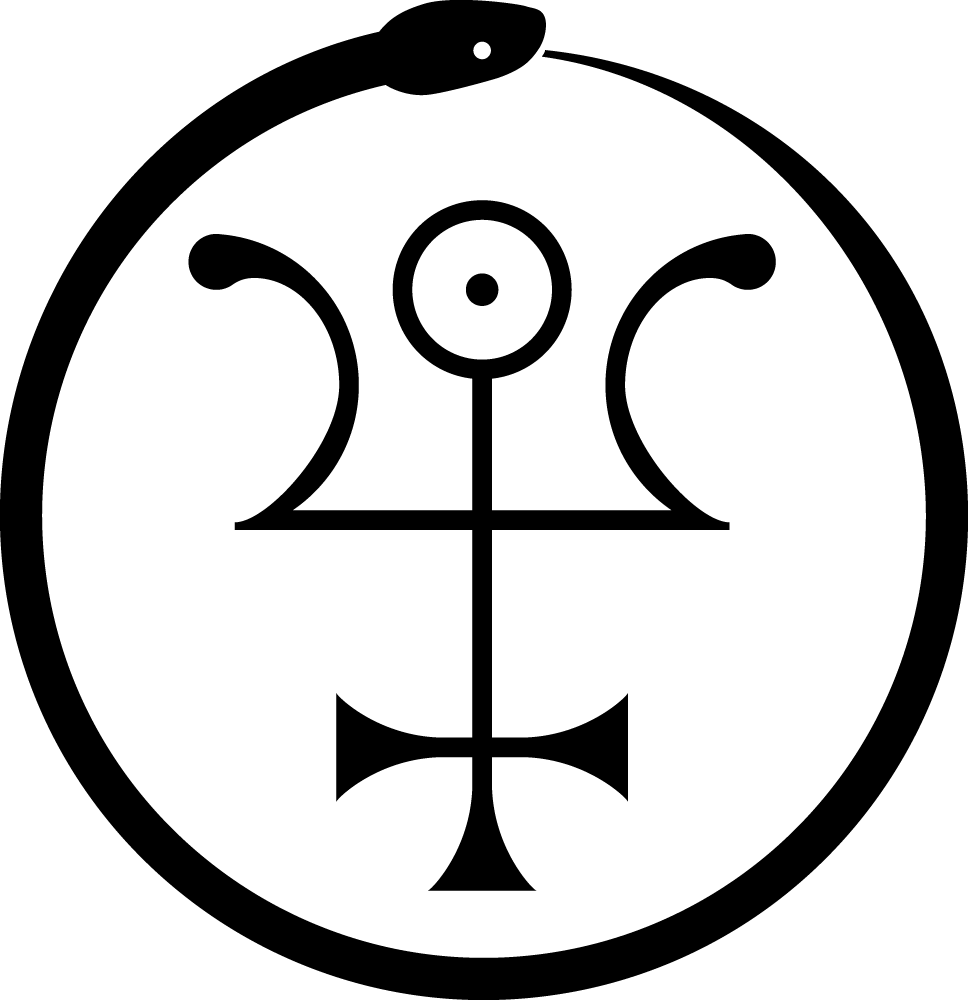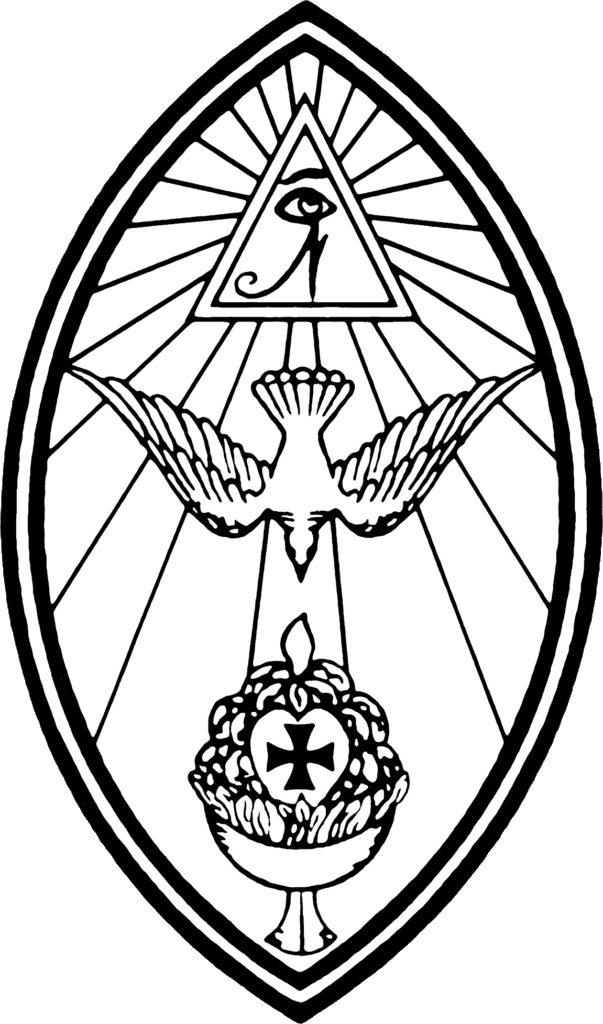NOTOCON XIV Keynote Address: From Gold Forge Steel
Address delivered by National Grand Master General Sabazius X°
to the Twelfth National Conference of the U.S. O.T.O. Grand Lodge
Saturday evening,
August 5, 2023 e.v. Denver, Colorado
Brothers and Sisters,
Do what thou wilt shall be the whole of the Law.
Let me start off by thanking Sister Amber, Sister Lori, Sister Diane, the members of Crux Ansata Oasis, the on site team, the security volunteers, and the Conference Committee for their work putting this conference together for us. I also need give a big thanks to Sister Kim for all her help and for always being on top of things.
Our theme this year is “From Gold Forge Steel,” taken from the Book of the Law, Chapter III, verses 31 and 32:
“There cometh a rich man from the West who shall pour his gold upon thee. / From gold forge steel!”
In his Old and New Comments, Crowley confesses that he doesn’t really know what these passages mean, but suspects that it will all be made clear someday.
As a matter of policy, however, OTO will have nothing to do with making it clear, so someone else will have to do that. Probably one of those people who write long, imaginative emails to all of our officers and local bodies.
So, rather than commenting on this passage, I’ll just talk about some random stuff.
First, I’d like to remind all of you that we do accept donations and bequests. Money as well as gold. Donations should be made to Ordo Templi Orientis U.S.A. Although we prefer that you don’t, you can tag your donation for development of a specific local body or for a specific project. However, if it’s a project that we’re not already working on, or your donation won’t cover the whole thing, it’s pretty likely that your donation won’t be used for a very long time. If your donation is tagged for something that we don’t want to do or have no power to do, such as declaring war on Saturn, then we’ll return it to you. If you’re interested in writing a bequest, the GTG has some guidelines on how to do it without causing legal headaches for us or your family.
Second, I have a few thoughts to share about struggle.
Crowley, as we all know, dedicated himself to establishing Thelema as a major world religion. After World War I, he had hopes that this could be accomplished by essentially partnering with one of the new, revolutionary, populist political movements that were rising at that time. It’s widely known that he tried to influence Hitler for a while via his associates Martha Küntzel and George Sylvester Viereck–but he also tried to get to the leaders of the British Communist Party via his friend Tom Driberg, and he even discussed with his friend and New York Times Moscow correspondent Walter Duranty the prospect of convincing Stalin’s Soviet Union to officially adopt the Gnostic Mass. But his attempts to gain favor with these mass movements really cannot be seen as an effort to ally himself with any particular right-wing or left-wing political ideology. Instead, he felt that, because these revolutionary movements were fundamentally opposed to the dominance of traditional Christianity in Europe, the vacuum left by their abandonment of Christianity could be neatly and naturally filled by Thelema.
Thankfully, these efforts went nowhere. Crowley ended up denouncing Nazism and Communism when he finally realized that they were much more interested in mobilizing great crowds of conformist bigots than in liberating their people from the conformist oppression of traditional religions. These movements were, of course, never even slightly interested in Thelema. And why would they be? What aspiring populist demagogue wants to be associated with an obscure, bookish, new religion full of puzzles and puns, that goes against most popular conceptions of what a religion should be, is “against the people,” and was founded by someone calling himself “The Beast 666.” That, my friends, is a sure-fire formula for political failure.
Crowley seems to have originally thought that Thelema, once adopted by one of these movements, would help to shape the movement as it matured. But that’s not what typically happens. Religions don’t bend mass political movements to their own ends–it’s nearly always the exact opposite. Political movements co-opt religions, cherry-picking their slogans and stories and doctrines and rituals, distorting their teachings, and generally using them as tools to rouse the rabble, give them false hopes, threaten them with non-falsifiable after-life punishments, and dehumanize their enemies, thereby accumulating power and wealth and security for themselves.
Especially now, with Crowley’s reputation having fermented over the years, I’d say we are, at this point, essentially safe from being co-opted by any moderately sane demagogue. Praise to Our Lord the Sun! It’s one less thing for us to worry about. We have no pressure to amass huge numbers of doltish converts by becoming a great, lying con-job in the service of oligarchs.
But if World Domination is out of reach for the time being, how do we forge the “steel” for our struggle? We have grown a wonderful–if small–community; how shall we apply ourselves in the wider world?
When we think of things made of steel, what usually comes to mind is the sword. Weaponry. Instruments of violence. But steel is also the material of hammers, nails, saws, and other instruments of construction. The capacity to defend ourselves is important; of course. But until that becomes necessary, I think our first priority should continue to patiently and persistently build our intentional, principled community in order to effectively carry out our work of promulgation of the Law of Thelema–which is not the same thing as recruiting or converting.
The Law of Thelema is, of course, expressed as “Do what thou Wilt shall be the whole of the Law.” This is, among other things, inherently an expression of radical tolerance; as elucidated as such by our own Liber Oz, which sets forth our understanding of the universal Rights of Humanity. Look at the formal salutation in the heading of our official documents: Peace, Tolerance, Truth. Principled tolerance is one of our most important founding principles–and our commitment to tolerance stands in revolutionary opposition to the enforced conformism of traditional, orthodox religions that have historically dominated–and oppressed–human society and thought.
This is, by the way, why these notions of “Traditionalist Thelema,” that have been bandied about in recent years, are nonsense. The spiritual philosophy of Traditionalism, according to its founders (René Guénon in particular), holds that all major, orthodox world religions are founded upon common primordial and universal metaphysical truths, which they refer to as the “perennial wisdom.” According to the Traditionalist way of thinking, new religions, and unorthodox religions, are considered aberrant.
Thelema has been around for only 119 years, formally. It’s pretty new. Furthermore, it’s pretty unorthodox. Thelema holds itself out as being both syncretistic (via the principles of the Hermetic Qabalah), and revolutionary; explicitly rejecting the major, orthodox world religions as corrupt and oppressive. So Traditionalism and Thelema are fundamentally incompatible, and “Traditionalist Thelema” is an oxymoron.
But those who advocate for a “Traditionalist Thelema” aren’t usually talking about the Traditionalism of Guénon; instead, they’re typically talking about the Traditionalism of Julius Evola, with the ultimate agenda of bringing Thelema under the wing of extreme right-wing politics. The distinguished scholar Marco Pasi, in his excellent book, Aleister Crowley and the Temptation of Politics, addresses this as follows:
“One of the conclusions this study does not reach, and against which the reader must be warned, is the idea that Crowley’s doctrine was inherently linked to an extreme right-wing or pro-Nazi political ideology. It is true that analogies and connections do exist between the doctrine of Thelema, as Crowley presented it, and certain elements of the radical politics of the interwar period. Nevertheless, the differences between the two are no less significant. First of all, Thelema presents itself as a universalistic message, despite its elitist component. It does not postulate intrinsic differences between people on the basis of their birth, sex or ethnicity. For all that Crowley may have had some idiosyncrasies in this regard, it appears that he more or less consistently endeavoured to keep these personal attitudes separated from the universal value of his religious message. It should therefore be emphasized that, even if it is not too difficult to find sexist or racist statements in Crowley’s writings, there does not seem to be an intrinsic anti-Semitic or racist component in Thelema.
“Certainly, there is a substantial difference between those who have discovered their True Will and those who remain “asleep”, not knowing their existential trajectory; but this is true for all doctrines of an initiatic or gnostic type, to which Thelema obviously appears to be related. Surely, the motto “Do what thou wilt” can be more easily interpreted by Thelemites today as the basis of an anarchist or libertarian doctrine than of a totalitarian one.”
But back to tolerance. Discussions of tolerance are often befuddled by the so-called paradox of tolerance; the idea that a tolerant society will ultimately be overturned by the intolerant forces that it tolerated. But this is sophistry–a rhetorical ploy that forces a complex, nuanced social issue into the simplistic realm of symbolic logic–where it is trapped in a false dilemma of mathematical absolutes. This dilemma is actually pretty easily solved, simply by recognizing the nuances involved. Advocating tolerance as a principle does not mean that you have to tolerate bad behavior!
Sometimes people dislike using the term tolerance because it can carry with it the connotation of “putting up with” something or someone. But, in my opinion, that’s not the best interpretation of tolerance as one of our philosophical principles. Neither is “acceptance.” Consider that (in Duty, Liber E, and elsewhere) Crowley charges us to explore all our possibilities and potentials to ultimately come to a better understanding of our strengths, limitations, and ultimately, our nature and our Great Work; and to let others do the same. To us, tolerance is essentially equivalent to minding our own business. We can, therefore, address issues of tolerance by determining whether any given thing is legitimately our business or not.
Part of our promulgation work, I think, is to scale this approach from the confines of our little community to the greater world. Liber Oz sets forth our formal ideas about basic human rights. Nowhere in this little book is there a qualification that these rights are for O.T.O. members, or A:.A:. members, or Thelemites, and nobody else. These are the Rights of Man, i.e. of humanity: men, women, people of all races and ethnicities, speakers of all languages, and LGBTQIA+ people. I have to add a note here that even though Liber Oz primarily addresses the rights of adults, nobody has the right to abuse children.
Now–you can’t credibly claim a basic human right for yourself while denying that same right to someone else–and you also can’t credibly claim a basic human right for yourself while turning a blind eye to another’s denial of that right. Therefore, it is clearly our business to assert these basic Liber Oz rights–for ourselves and for everyone.
In my mind, “intolerant behavior” includes any attempt to deny basic human rights to any person, and such behavior falls outside the scope of our principled tolerance. We who hold up the principle of tolerance are in no way obligated to abide the infringement of anybody’s basic human rights. So intolerance of intolerance can be seen as the very essence of our tolerance. And that’s something worth fighting for,
because…
Love is the law, love under will.

